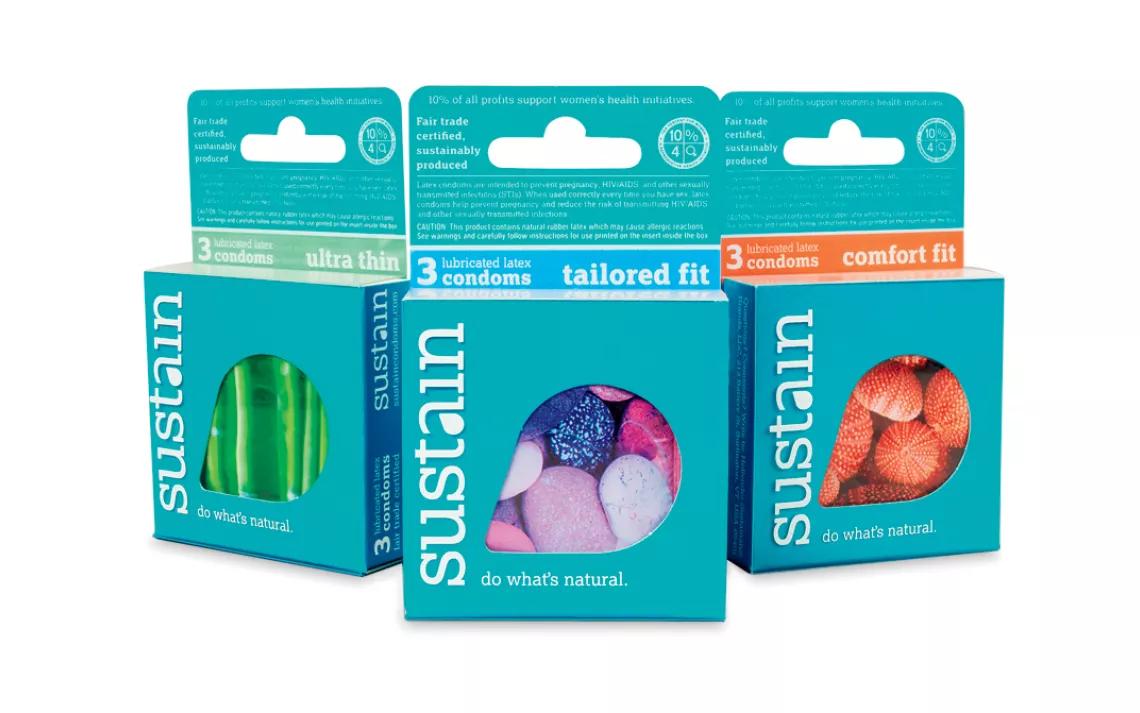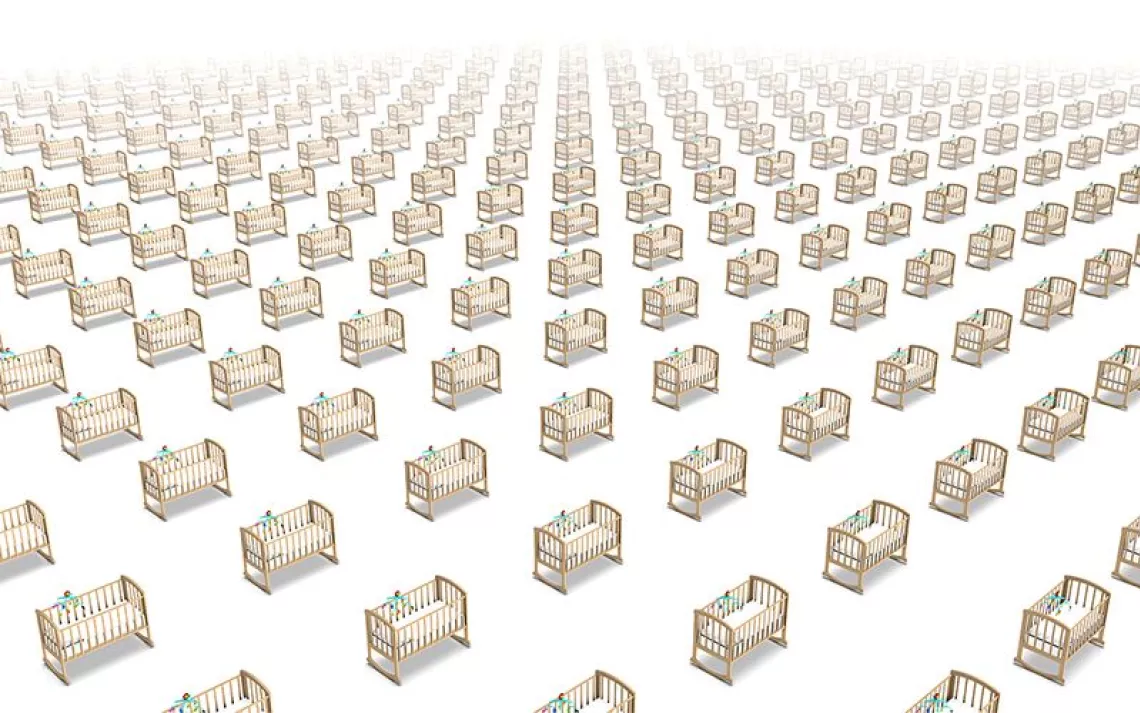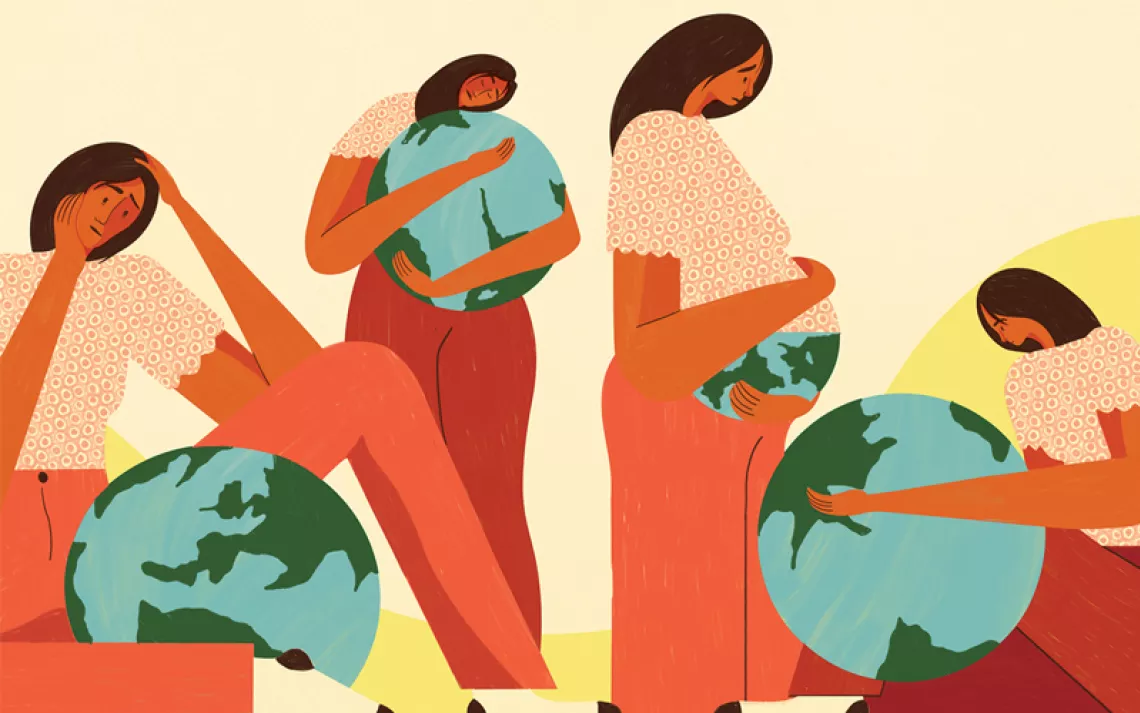The Rise of Eco-Conscious Condoms
New companies are helping make safe sex more sustainable

Sustain Condoms is a major player in the environmentally responsible birth-control game.
Jeffrey Hollender, who co-founded Seventh Generation, one of the world's most eco-conscious cleaning-products companies, is greening up another industry: birth control.
He co-founded Sustain Condoms with his daughter, Meika, to make contraceptives for those who don't want their safe-sex practices to muck up the planet.
"We decided to go into the condom business to connect population and climate change," he says. "One of the most important aspects of controlling climate change is making sure that families aren't having children they don't want to have." That, in part, is why the Hollenders give 10 percent of their profits to organizations that provide reproductive care to women.
Unlike those produced by mainstream condom companies, Sustain's prophylactics are made from fair-trade rubber harvested from a Forest Stewardship Council–certified plantation in India where protecting biodiversity is a priority. They're free of the carcinogenic nitrosamines that are pervasive in other brands. And Sustain's packaging is recycled and biodegradable—though the condoms themselves aren't.
Sustain isn't the only player in the environmentally responsible birth-control game: There's also L., a company founded by photojournalist Talia Frenkel. Her condoms also come in 100-percent-recycled packaging, and for every L. condom purchased, Frenkel distributes one in a developing country.
Glyde, for its part, is a fair-trade brand that also uses sustainable materials in its products. And Natex puts out 100 million condoms each year, made mostly from wild-grown rubber hand-harvested in the Amazon.
Each year, people buy 5 billion condoms, which turn into 22 million pounds of waste. And though no condom maker has yet pioneered a way to stem that tide of baby-blocking trash, the Hollenders are implementing a greener production process—Sustain's factory is solar powered and highly water efficient.
"As with Seventh Generation," Jeffrey says, "the biggest impact we have is changing the way our competitors behave because we're raising standards. The best thing people can do is copy what we're doing."
 The Magazine of The Sierra Club
The Magazine of The Sierra Club



